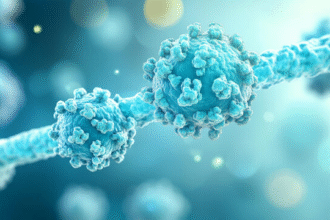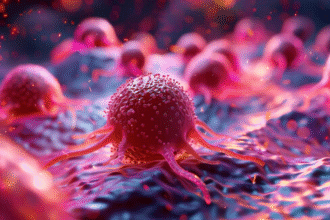Protein Technology
Protein technology encompasses techniques for isolating, purifying, detecting, modifying, and applying proteins. It plays a pivotal role in understanding protein structure and function, enabling advancements in biotechnology, medicine, and synthetic biology.
Key Points
- Protein technology integrates chemistry, crystallography, and molecular biology to study proteins.
- Enables the design and synthesis of proteins with specific structures and functions.
- Applications include drug development, industrial enzymes, and synthetic biology.
- Advances in genetic engineering allow the creation of transgenic systems for protein expression.
Foundations of Protein Technology
- Protein isolation and purification:
- Techniques such as chromatography, electrophoresis, and ultracentrifugation.
- Ensures high purity and activity for downstream applications.
- Structural analysis:
- X-ray crystallography, NMR spectroscopy, and cryo-electron microscopy to determine 3D structures.
- Provides insights into protein folding, stability, and interactions.
- Molecular dynamics:
- Simulations to study protein motion and conformational changes.
Genetic Engineering in Protein Technology
- Gene modification:
- Purposeful design and alteration of protein-encoding genes.
- Enables the expression of proteins in transgenic systems (e.g., bacteria, yeast, plants).
- Protein synthesis:
- Creation of proteins with specific amino acid sequences and spatial structures.
- Predicts protein function from sequence data.
- Novel protein design:
- Synthesis of proteins with tailored biological functions for specific applications.
Applications of Protein Technology
Medicine
- Therapeutic proteins:
- Production of insulin, monoclonal antibodies, and clotting factors.
- Vaccine development:
- Recombinant protein vaccines (e.g., hepatitis B, HPV).
- Diagnostics:
- Protein biomarkers for disease detection and monitoring.
Industrial Biotechnology
- Enzymes:
- Development of industrial enzymes for detergents, food processing, and biofuels.
- Biocatalysis:
- Use of engineered proteins to catalyze chemical reactions efficiently.
Synthetic Biology
- Protein engineering:
- Creation of novel proteins for synthetic pathways.
- Biosensors:
- Proteins designed to detect environmental toxins or pathogens.
Challenges and Future Directions
- Challenges:
- Predicting protein folding and stability accurately.
- Overcoming limitations in protein expression systems.
- Future directions:
- Advances in AI for protein structure prediction (e.g., AlphaFold).
- Integration of protein technology with CRISPR and synthetic biology.
- Development of de novo proteins with unprecedented functions.
Patient and Public Education
- Highlight the role of protein technology in improving healthcare and industry.
- Promote awareness of ethical considerations in genetic engineering.
- Encourage informed discussions on the societal impact of protein-based innovations.
Protein technology continues to revolutionize our understanding of biology and its applications, paving the way for breakthroughs in medicine, industry, and environmental science.







